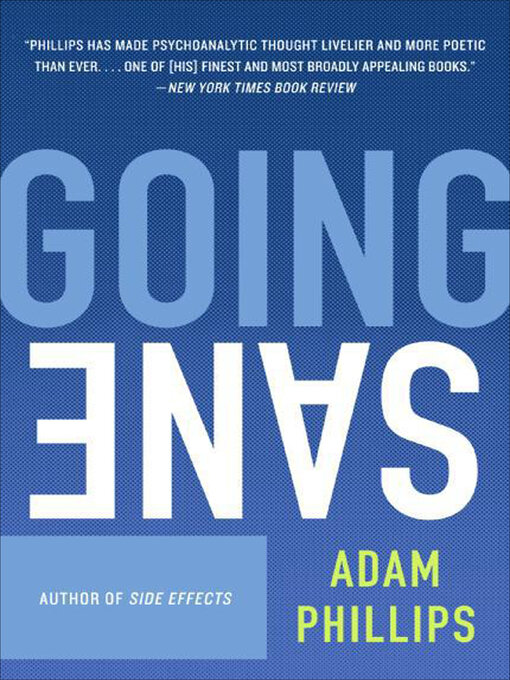Being sane has long been defined simply as that bland and nebulous state of not being mentally ill. While writings on madness fill entire libraries, until now no one has thought to engage exclusively with the idea of sanity.
In a society governed by indulgence and excess, madness is the state of mind we identify with most keenly. Though ultimately destructive, it is often credited as the wellspring of genius, individuality, and self-expression. Sanity, on the other hand, confounds us. One of the world's most respected psychoanalysts and original thinkers, Adam Phillips redresses this historical imbalance. He strips our lives back to essentials, focusing on how we—as human beings, parents, lovers, as people to whom work matters—can make space for a sane and well-balanced attitude to living. In a world saturated by tales of dysfunction and suffering, he offers a way forward that is as down-to-earth and realistic as it is uplifting and hopeful.

